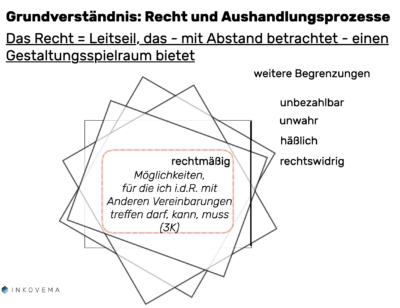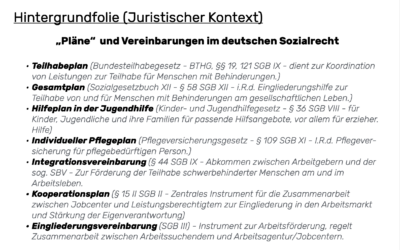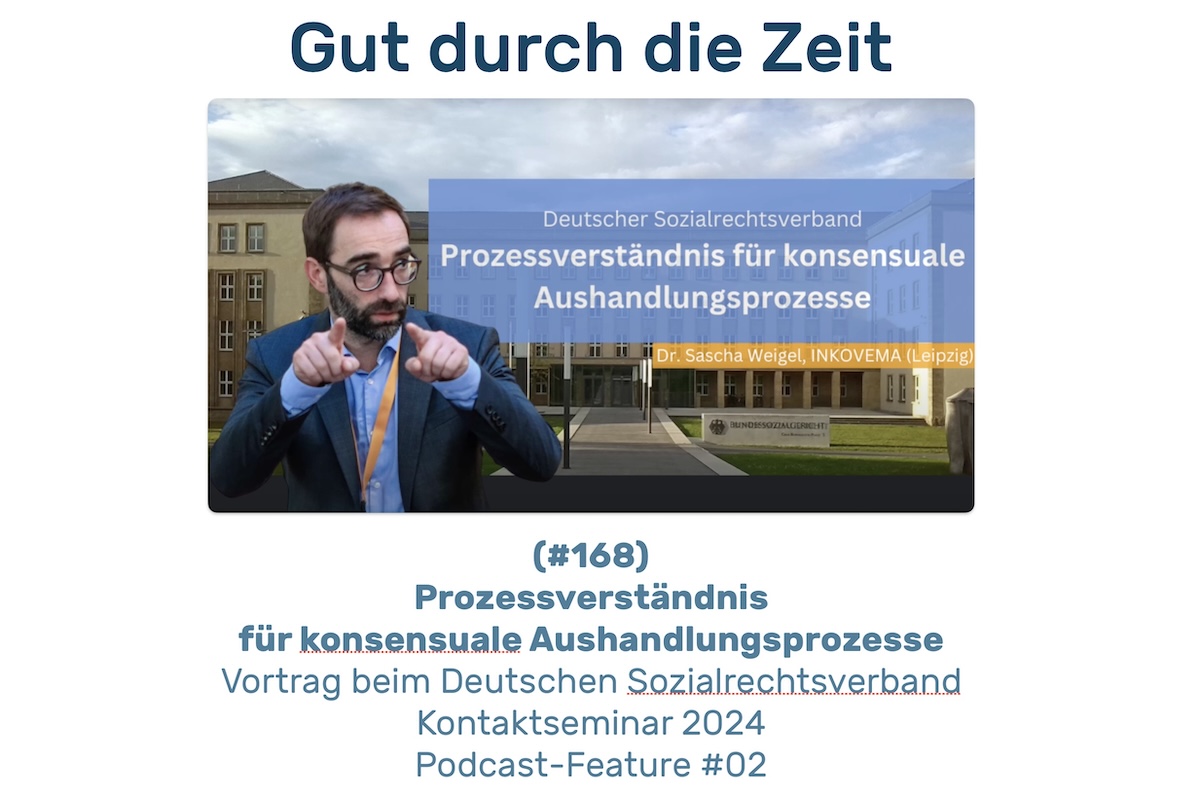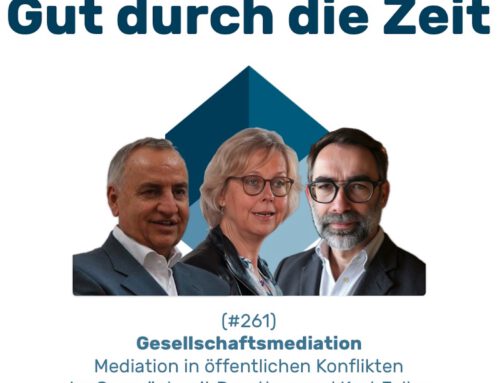INKOVEMA Podcast „Well through time“
#168 – Process understanding of causal negotiation processes using the example of mediation and coaching
What understanding of the process underpins non-directive, process-accompanying counselling procedures? Presentation at the contact seminar of the German Social Law Association – February 2024
Well through time. The podcast about mediation, conflict coaching and organisational consulting.
Lecture by Sascha Weigel
Contents:
Summary
In his lecture for the German Social Law Association, Prof. Dr Sascha Weigel offers an insight into the understanding of the process for non-directive counselling assignments. In view of the legal changes in social law, which increasingly emphasise such consensual negotiation processes, the background to the lecture request is provided by Prof. Weigel.
1. fundamentals and legal frameworkThe lecture begins with an introduction to the basic legal instruments and plans used in German social law. From participation plans to integration agreements, the importance of these documents for promoting participation and integration into society will be emphasised. Increasingly, emphasis is being placed on official counselling that is non-directive, „not sovereign“, but works in partnership at eye level.




2. personal insights and experiences:
Sascha Weigel shares personal experiences from his work in various social contexts.
3. understanding of law and negotiation processes:
A central theme of the lecture is the understanding of law as a framework that offers not only restrictions but also room for manoeuvre. This section emphasises the importance of negotiation processes and the role of law no longer as a guiding rope, but as a playground which, by its very existence, demands (the decision) where to spend one's time.
4 The importance of dialogue:
Sascha Weigel explains how conversations as communicative instruments can encourage self-help by promoting personal responsibility and self-development. He presents guidelines for conversations at eye level and the need to act in a supportive rather than patronising manner.
5. structure and phases of a counselling interview:
The guide describes in detail the various phases of a counselling session - from the contract phase to clarification and finding a solution through to implementation. This section provides practical instructions for effective counselling.
6. dealing with challenges:
Finally, strategies for dealing with typical counselling traps as well as passivity and resistance in counselling sessions are presented. Prof Weigel discusses how these challenges can be overcome constructively in order to promote successful negotiation processes.
Conclusion:
This lecture offers both theoretical basics and practical tips for designing effective and goal-oriented counselling work, as is increasingly required by social law.
With the Contact seminar the German Social Law Association realises its goal of fostering social law in academia and practice by bringing them together. Each year, the event is dedicated to a current topic in social policy and social law and provides an opportunity for simultaneous academic and practical consideration. Academics and practitioners should enter into dialogue with each other, not only to strengthen their understanding of the other profession, but also to develop ideas for the further development of their own position and actions. The conference contributions will be documented in Sozialrecht aktuell. The main topic was 2024: Negotiation processes in social benefits law: agreements, plans and contracts
The main topic was 2024: Negotiation processes in social benefits law: agreements, plans and contracts





Leave A Comment